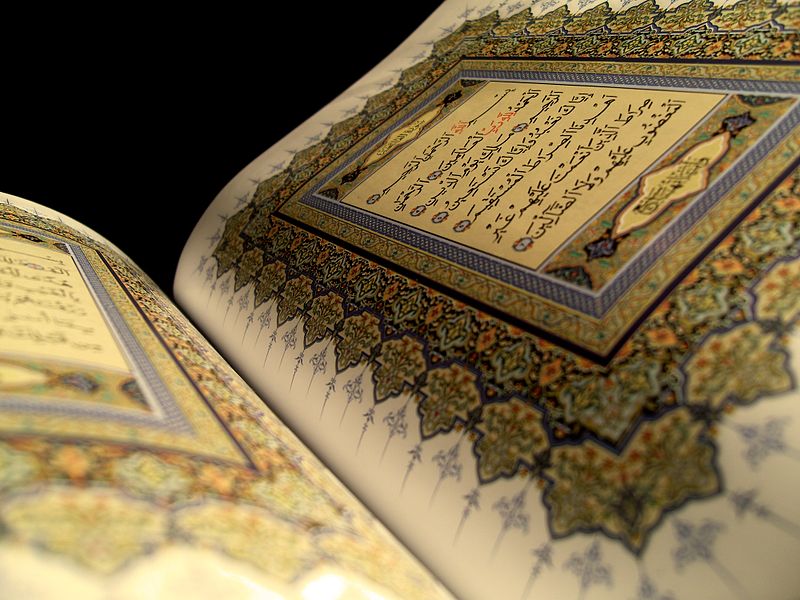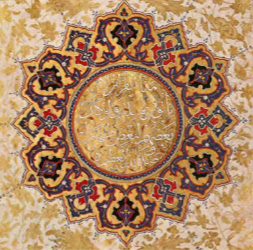IQSA 2015 – Updates & Announcements
Dear Friends,
I trust this message finds you well, and for those of us nearing the end of our academic year I wish you all the best of luck. Since our meeting in San Diego, the International Qur’anic Studies Association (IQSA) has successfully completed a number of important activities, and we continue to develop the organization to better serve our members and fulfill our mission and vision. The purpose of this message is to inform about our recent activity.
New Homepage & Welcome Video
To serve you better our landing page on IQSAWEB.ORG is now simpler than ever. Visitors are given a warm welcome and introduction to IQSA by watching leading members of the community speak on VIDEO. Furthermore, the number on the page has been reduced to include only what is essential—enjoy!
IQSA Membership & AM Registration
To become an official MEMBER of IQSA for 2015, and to receive exclusive mmber benefits, please GO HERE (http://members.iqsaweb.org). There is a flat $25 membership fee for 2015. (Note that if you became an IQSA member in 2014 you need to sign up once again for 2015)
To attend/present in our 2015 annual meeting, taking place in Atlanta this November, you will need to REGISTER through the SBL website HERE (https://www.eiseverywhere.com/ereg/index.php?eventid=119829&categoryid=1021237&t=ccee0d3cfcb94900b333ce9916cb48fe). You will register as an “affiliate.”
Now Online: RQR and Membership Directory
Current IQSA members already have access to exclusive member benefits, namely:
* The Review of Qur’anic Research (ACTIVE)
* Membership Directory (ACTIVE)
Coming Soon: Qur’an Seminar, Job Board and JIQSA
Current and future members will soon have access to the following exclusive services and products as well:
* The interactive Qur’an Seminar website (2015)
* IQSA Job Board (2016)
* The Journal of the International Qur’anic Studies Association (2016)
2015 International Meeting (Yogyakarta, Indonesia)
Our much anticipated international meeting in Yogyakarta, Indonesia will take place August 4-7, 2015. We are very excited about this conference and the international scholarly exchange it will foster. We are also very pleased with the interest of our members and the public in attending this conference. For more information please GO HERE (https://iqsaweb.org/meetings/im2015)
2015 Annual Meeting (Atlanta, GA, USA)
The program for Atlanta is almost set and promises to be both informative as well as exciting. For more information please GO HERE (https://iqsaweb.org/meetings/) and do not forget to become a MEMBER and REGISTER (See above).
Be an IQSA citizen – nominate future officers
All IQSA members are encouraged to submit names of potential candidates for the following positions:
* President Elect for 2016
* IQSA Board Member
* Nominating Committee Member
Nominations should be sent to contact@iqsaweb.org. For more information please GO HERE (https://iqsaweb.org/2015/04/21/call-for-nominations)
Share your research – BLOG, RQR or JIQSA
If you or a colleague are currently undertaking research as a faculty member or post-doc, working on a new project as a graduate assistant or would like to share information about an upcoming Qur’an related conference, workshop or service, please consider writing a blog post for us. Your blog post will receive one to two thousand views in the first week! Blog posts in languages other than English are acceptable. Blog contributions should be sent to Dr. Vanessa Degifis (vdegifis@wayne.edu)
Scholarly reviews should be submitted to RQR and academic articles to JIQSA (See above).
Needed: Two Grad Student Assistants
We are seeking two graduate students assistants to help out with editorial and online assistance. This is a great opportunity for networking, professional development and hand-on experience. Learn more about these positions HERE (https://iqsaweb.org/2015/03/16/iqsa_jobs_grad_assts). Applications are welcome anytime but an initial review of applications will take place by June 1, 2015.
Social Media
Don’t forget to follow us on Twitter @IQSAWEB and Like us on Facebook, search “International Qur’anic Studies Association.”
Special Thanks
IQSA’s continued success is not possible without the dedication and skill of its officers and employees. I would especially like to thank Irfana Hussain, Vanessa DeGifis, Mun’im Sirry, Sean Anthony, Catherine Bronson, Mehdi Azaiez, Gabriel Reynolds, Nicolai Sinai as well as all unit chairs, Michael Pregill, Holger Zellentin and Missy Colee and her team at SBL.
Finally, please do not forget to join IQSA by becoming a MEMBER and REGISTERING for our 2015 Atlanta annual meeting by May 22, 2015. That’s one month away!
On behalf of the Board of Directors, Standing Committees and our partners I would like to express our deepest gratitude to all IQSA members and friends.
Sincerely,
Emran El-Badawi, Executive Director
 The Qurʾan Seminar invites you to add your own commentaries on a new selected passage of the Qur’an: Q. 3 :1-7. The Qurʾan Seminar, organized by IQSA, is dedicated to collaborative study of selected passages that are significant for understanding major themes and structures of the Qur’anic text. Contributors are encouraged to address the Qur’an directly and to not rely on classical exegesis as a lens through which to view the text. Of particular interest to the discussion are the following questions:
The Qurʾan Seminar invites you to add your own commentaries on a new selected passage of the Qur’an: Q. 3 :1-7. The Qurʾan Seminar, organized by IQSA, is dedicated to collaborative study of selected passages that are significant for understanding major themes and structures of the Qur’anic text. Contributors are encouraged to address the Qur’an directly and to not rely on classical exegesis as a lens through which to view the text. Of particular interest to the discussion are the following questions:



